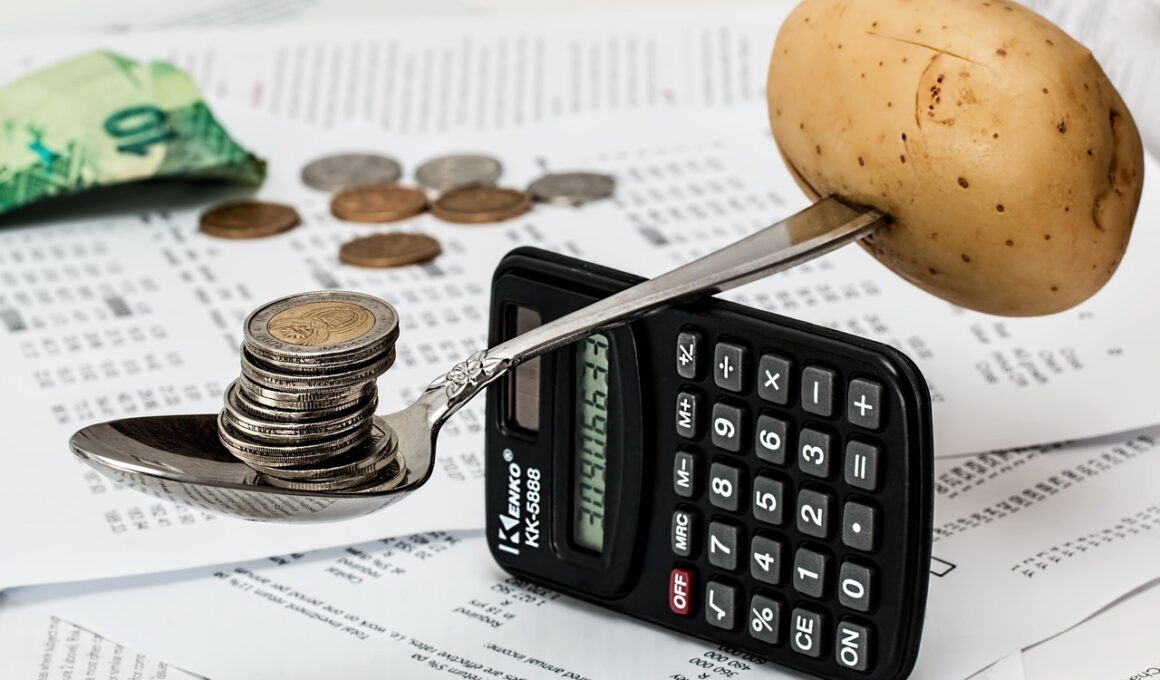The Ultimate Budget Planner: Keeping Your Finances in Check
Managing your finances can seem overwhelming, but tracking your expenses effectively is the first step to a successful budget. An effective method often starts with the commitment to record every single transaction. Approach this with a mindset geared towards improvement. Use financial apps or traditional paper ledgers that suit your style. Consider utilizing methods like the envelope system to separate cash for specific spending categories. This technique provides a tangible way to limit expenditures. Furthermore, set aside dedicated time weekly to assess your records. By doing this, you not only ensure all expenses are accounted for but also identify trends and spending habits. You may discover areas in your finances that require adjustments. For instance, regular subscriptions may need evaluations to determine their actual value. Adopting these habits aids in transforming your approach to spending, allowing you to allocate funds more wisely in pursuing savings goals or paying down debt. Start with small changes and gradually implement more comprehensive tracking systems to streamline your budgeting process effectively. A consistent strategy of tracking leads to financial awareness and ultimately, greater control.
Understanding Categories for Better Tracking
To streamline the process of tracking expenses, categorizing them into meaningful groups is vital. Begin by outlining all your spending categories, such as groceries, entertainment, utilities, and transportation. This systematic approach enhances clarity in your financial overview. Once categorized, monitor your spending in each section regularly, and evaluate which categories eat up your budget. This practice facilitates pinpointing areas that may need attention. Implementing a line item in your budget for unexpected expenses is also crucial. It helps to reinforce a buffer within your financial plan. Additionally, tools such as spreadsheets or budgeting apps can further simplify this categorization process. Most apps allow custom categories that can align directly with your spending habits and goals. Make adjustments as necessary to reflect changes in your lifestyle or priorities. By remaining flexible, you can adapt your budget as circumstances evolve. Furthermore, revising your categories periodically can lead to improved tracking accuracy over time, ensuring your budget remains relevant and effective in meeting your financial aspirations. This conscious and organized method is a significant step toward achieving healthy financial habits.
One effective strategy in tracking expenses is to adopt a transparent mindset when it comes to sharing financial responsibilities. Discussing budgeting openly with family members or partners fosters a culture of accountability and collective management of resources. This collaboration can include setting joint financial goals, encouraging contributions towards shared expenses, and celebrating milestones together. Open communication ensures that everyone is on the same page regarding the family’s financial situation. Establish regular check-in meetings amongst yourselves to assess budget adherence and discuss any financial surprises that may arise. This inclusive approach allows all involved parties to contribute insights into where potential savings can be realized, or where adjustments are necessary. Furthermore, empowering all members in these discussions promotes financial literacy within the household. By understanding how money flows in and out, everyone can appreciate the importance of mindful spending. Families can also turn tracking into a fun activity by involving children and teaching them about money management in enjoyable ways. With this cooperative spirit, achieving financial objectives becomes more attainable while strengthening familial bonds through shared responsibility and learning.
Technological advancements offer numerous tools to enhance your expense tracking process. Numerous budgeting applications, such as Mint or YNAB (You Need a Budget), can automate expense tracking and offer a user-friendly interface. Set these up to sync with your bank accounts for real-time transaction updates, which significantly lessens the manual tracking burden. These apps also generate reports that provide insights into your spending patterns, helping you learn from overspending tendencies. Experimenting with different apps will help you find one that fits your lifestyle. Additionally, utilizing spreadsheets can be an effective alternative for those who prefer a more hands-on approach. They offer total customization regarding categories and formulas to automate calculations. Be sure to regularly review your expenditure reports generated from your chosen tracking method every month. Setting a specific time for this review promotes discipline and routine. Not only will you become more familiar with your spending habits, but consistent review will also help catch potential financial pitfalls early. Investing time in learning these tools is critical. Effectively leveraging technology can simplify budget management and lead to more informed financial decisions. Embrace the ease technology brings to personal finance!
Setting Realistic Financial Goals
Establishing clear, realistic financial goals is essential for staying on track financially. Begin by differentiating between short-term and long-term objectives. Short-term goals could include saving for a vacation, while long-term goals might encompass building a retirement fund. Establish SMART (Specific, Measurable, Achievable, Relevant, Time-bound) criteria; this ensures your goals are realistic yet ambitious. Once defined, integrate these goals into your budget. Allocate portions of your income towards achieving them and monitor progress regularly. Utilizing visualization tools, such as vision boards or progress charts, is an effective motivational strategy. They can provide a tangible representation of your commitment to these goals, reinforcing your determination. Celebrate small victories along the journey, as this positive reinforcement builds momentum. Financial apps can also serve as reminders, constantly pushing you toward these objectives. Revisiting and adjusting your goals as your financial situation evolves is crucial to maintaining motivation. If an unexpected expense arises, reassess the budget, and refocus on your priorities. Recognizing that achieving goals is a journey helps maintain a positive mindset, reinforcing dedication toward achieving financial stability. Maintaining focus on defined goals will set a successful financial pathway.
Regularly recalibrating your budget ensures that your financial plan reflects real-life changes. Monthly revisions based on your income, expenses, and lifestyle shifts can enhance the effectiveness of your budget. As holidays approach or individual life events occur, adjusting your financial plan becomes necessary to accommodate these changes. Additionally, fluctuations in income such as bonuses or commissions warrant re-evaluating your budget and expenses to adjust priorities accordingly. Integrate a reflection period at the end of each month to analyze financial performance over the past weeks. Use this time to evaluate how well your tracking and budget management performed compared to your goals. Identify spending categories that may require stricter limits or areas where cutting back is feasible. Continuous evaluation propels you towards developing improved money management habits while encouraging mindfulness around expenditures. Don’t be afraid to eliminate categories entirely that don’t serve your current financial goals. Financial situations are dynamic; therefore, allowing yourself to adapt ensures ongoing commitment to your financial future. Inviting flexibility into your budgeting framework contributes to maintaining awareness of current needs and desires. Embracing this strategy will lead to sustained financial growth and resilience.
Finally, embracing the journey of financial management involves cultivating patience and discipline when it comes to tracking expenses effectively. Establishing these traits means recognizing that achieving financial stability is not an overnight feat. Implementing consistent tracking habits will yield benefits over time, leading to more efficient money management. Overcoming setbacks, such as overspending or unexpected expenses, requires resilience and a willingness to adapt. Instead of becoming discouraged, view each setback as a learning opportunity. Reflect on what led to this deviation and adjust your budget accordingly. They say, “failing forward” applies aptly in financial situations too. Small lapses do not define your overall progress; rather, it’s how you respond that creates lasting positive changes. Sharing your experiences with peers or online communities can foster accountability and encouragement. By remaining engaged, you can inspire others on their financial journeys while gaining new insights to improve your own. Above all, remember your progress is a journey filled with ups and downs. Embracing this outlook will transform your approach to budgeting, making financial management a more enjoyable and rewarding experience.
Final Thoughts on Expense Tracking
In summary, tracking expenses effectively is essential in navigating finances. Furthermore, understanding categories, utilizing technology, setting realistic goals, and committing to regular reviews can significantly enhance expense tracking practices. This organized and strategic approach leads to informed decisions, increased awareness, and ultimately a healthier financial landscape. Begin today by implementing these principles gradually and consistently to see transformative effects on your budgeting journey. With discipline and adaptability, anyone can manage their finances successfully while setting themselves up for better financial health!


